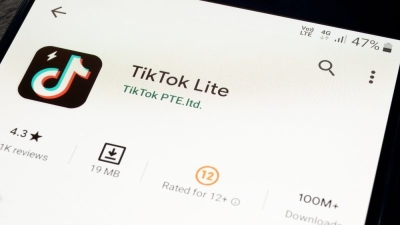EU’s cost-benefit analysis under fire in pushback against packaging law

The European Commission’s cost-benefit analysis of its packaging waste law is being called into question amid ongoing pushback against reuse targets by the industry and lawmakers in the European Parliament.
The EU’s packaging and packaging waste regulation (PPWR) has become a lobbying battleground, with industry and right-wing lawmakers criticising the law’s reuse targets while environmental campaigners, left-wing and Green lawmakers are calling for more action.
Tabled in November last year, the PPWR proposes to introduce a ban on single-use packaging for dine-in restaurants from 1 January 2030 as well as targets to expand the use of reusable packaging for takeaway.
But the Commission’s impact assessment – a cost-benefit analysis the EU executive is required to undertake for every major piece of legislation – has been criticised for failing to differentiate between packaging materials and lacking analysis of the economic, health and environmental impacts of the proposed targets.
“In the absence of a proper impact assessment taking account of environmental, consumer behaviour and economic implications, there is no guarantee that the proposed measures will have the desired benefits,” an industry coalition warned EU countries in March.
“On the contrary, they could have a detrimental impact on our environment; on consumer access, choice and convenience; and on many companies in our sectors operating in the EU,” the letter reads.
Asked about the criticism, a Commission official told EURACTIV its impact assessments are based on consultations with all interest groups, including the industry, and examined by an independent in-house body, the regulatory scrutiny board.
According to the Commission, the model used to calculate the financial, environmental and social impacts of the proposed law found no increase in fossil fuel usage while boosting recyclability and job creation.

Lead EU lawmaker cuts takeaway reuse targets from draft packaging waste law
Targets to boost the reuse of packaging in the restaurant sector have been deleted by the European Parliament lawmaker in charge of negotiating a new law on packaging waste, according to a set of amendments seen by EURACTIV.
Mixing too many things together
According to the industry, the law risks backfiring as the impact assessment mixed all EU countries, sectors and packaging materials at once, creating unrealistic benchmarks.
“It’s like if you want to assess the environmental performance of a car, of an elephant, of an apple and you put everything in a blender and then you have a result,” said Matti Rantanen, director general of the European Paper Packaging Alliance, which represents food and food service packaging companies.
“The key point you should look at is the best environmental outcome,” he told EURACTIV, adding this should be done with a sector-specific system-based assessment of the product’s impact in its lifetime.
The mixing of materials also merges those with different recycling rates, warns the paper-based packaging industry, which is currently based on a throw-away model.
“Putting a material with a recycling rate of more than 90%, like paper, on the same level as a material with a 35% recycling rate is simply not fair,” said Eleni Despotou, director general of FEFCO, the European Federation of Corrugated Board Manufacturers.
However, environmental group Zero Waste Europe disputes these claims, telling EURACTIV that a comprehensive, holistic view of the system’s interdependencies was needed while a specific analysis would have risked producing limited insights.
The Commission, for its part, defended its assessment, saying it used a transparent methodology and “systematic approach” to evaluate the environmental impact of packaging through the entire life cycle. According to the Commission’s analysis, reuse targets could slightly decrease water consumption and reduce CO2 emissions by 1.25 million tons in 2030.

Parliament split over how to tackle EU’s packaging waste problem
Lawmakers in the European Parliament are split over the best way to tackle Europe’s growing packaging waste problem, with reuse versus recycling at the heart of the debate.
Substitution effect
Critics have also warned that reuse targets for packaging could drive up plastic as a replacement for paper, leading to what right-wing lawmaker Massimiliano Salini (European People’s Party) called a “reverse effect”.
Green campaigners, for their part, disagree. Marco Musso from the European Environmental Bureau told EURACTIV the growth in reusable plastic packaging will likely be most relevant for sectors that prioritise speed and lightness, like fast-food, takeaway restaurants and supermarkets.
“For many other actors in HORECA [hotel, restaurant, catering] sectors, we don’t necessarily expect that the switch to reusable tableware will be only towards plastics,” he explained.
Environmental campaigners have also warned against relying too heavily on paper. In the food sector, packaging often includes a layer of plastic to protect the food, making it harder to recycle, according to Sergio Baffoni from the Environmental Paper Network, an NGO group pushing for sustainability in the industry.
“Substituting throwaway plastic with throwaway paper will not reduce waste, will not save the planet’s ecosystems, and will only intensify pressure on forests and precious wood resources,” he said.
Economic cost underestimated
Another criticism is that the Commission’s assessment grossly underestimates the cost of packaging reuse targets. The EU executive calculated that the direct costs for all reuse schemes would be €4 billion with an additional €523 million needed for deposit return schemes.
But the industry argues this will be far higher, pointing to a study that found switching to reuse for 20% of PET bottles used by the carbonated soft drinks industry alone would be €18.7 billion.
The current lack of experience with reuse and waste prevention measures makes them hard to assess, said Larissa Copello from Zero Waste Europe, but her NGO believes the assumptions are “well-balanced and realistic” as some of the infrastructure needed is already in place.
“It is not a coincidence that this critique mostly comes from those sectors which have to deliver on these targets and who are most interested in having EU taxpayers pay for the infrastructure while they continue to externalise the costs of single-use packaging,” she added.
The Commission, meanwhile, admitted that reusable packaging will increase costs. However, it said those could be mitigated by big economic operators making economies of scale while small and medium businesses will be able to join pooling systems to share reusable packaging among themselves.
Health aspects neglected
Reuse targets are also being called into question over health concerns, with the industry warning that a lack of consumer trust in the safety of reuse systems could undermine the law’s objectives.
However, environmental campaigners argue there are already functioning reuse systems in several member states, including for beverage bottles in countries like Belgium and Germany.
“These reuse systems have been working at scale for years without unintended consequences on hygiene and consumers,” said Musso, adding that the criticisms are “more anecdotal than based on real evidence”.
‘’It is also important to note that the proposed regulation already includes several clear provisions to guarantee safety and hygiene,” he told EURACTIV.
But while well-managed reuse systems already provide this guarantee, sweeping obligations may undermine this, the industry warns.
Support for reuse
Meanwhile, others are pushing to maintain strong reuse targets, citing the need to tackle Europe’s growing packaging waste problem.
The Commission for instance pointed out that, while recycling rates for packaging have increased, waste generated outpaces this and the business-as-usual scenario shows the EU it will continue growing unsustainably, increasing by 18.2% by 2030.
Left-wing lawmakers agree. “The most striking message of the impact assessment is what will happen if we do not take ambitious, rapid and far-reaching action,” said Grace O’Sullivan, the Greens’ negotiator for the file.
“As responsible policymakers, we need to look beyond the impact assessment only. There are also other studies and evidence out there supporting certain policy choices,” added Delara Burkhardt from the Socialists and Democrats (S&D).
Read more with EURACTIV




